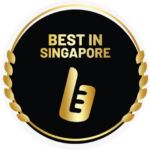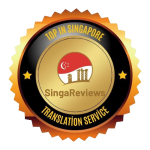
Professional Clinical Research Translation Services for Singapore’s Healthcare Sector
Singapore’s healthcare sector stands as one of the leading models of innovation and excellence in Asia, attracting multinational pharmaceutical companies, research institutions, and clinical trial sponsors. As Singapore continues its commitment to medical advancement and global healthcare standards, the demand for precise and reliable clinical research translation services grows more vital. These services play a central role in ensuring effective communication, facilitating international collaboration, and upholding strict regulatory requirements within the sector.
Clinical research operates in a highly regulated and language-sensitive environment. This reality underscores the need for professional translation services that extend beyond simple word-for-word conversions; they require subject-matter expertise, an understanding of medical terminology and accuracy, and a deep knowledge of local and international regulations.
For an insightful examination of how increased demand in the pharmaceutical sector can lead to medicine shortages, readers may wish to explore the factors contributing to medicine shortages in times of high pharmaceutical demand, which discusses the impact of global health crises and supply chain challenges on access to essential treatments.
The Evolving Landscape of Clinical Research in Singapore
Singapore is home to a bustling life sciences industry, driving innovation in clinical trials and biomedical research. As pharmaceutical and clinical research activities expand, the importance of clear and accurate multilingual communication becomes increasingly crucial. International partnerships and regional clinical trials often involve diverse patient populations and regulatory bodies. In such settings, precise translation of trial protocols, informed consent forms, and patient materials ensures ethical research practices and strengthens global collaboration.
Professional clinical research translation services are essential for meeting the unique needs of Singapore’s multicultural and multilingual context. The ability to communicate clearly across languages helps maintain the country’s position as a leading hub for biomedical and clinical research in Asia.
For a comprehensive look at why precise language is the cornerstone of pharmaceutical success, readers may wish to consult the essential role of medical translation in pharmaceutical companies, which explains how effective translation underpins patient safety, regulatory compliance, and market expansion in a globalised healthcare environment.
Key Areas Supported by Clinical Research Translation Services
Clinical research translation services are essential in bridging language gaps, ensuring that every medical document is clearly understood by all stakeholders involved.
1. Translation of Complex Medical Documents
Research documentation, including patient consent forms, protocols, case report forms, and investigator brochures, contains highly specialised vocabulary. Inaccurate translation may lead to misunderstandings, compliance risks, or even endanger patient safety. Professional translation services deliver consistency, quality, and accuracy in medical terminology across all medical documentation.
2. Regulatory Compliance Translation
Singapore’s clinical research is regulated by the Health Sciences Authority (HSA) and must follow international guidelines such as ICH-GCP (International Conference on Harmonisation – Good Clinical Practice). Regulatory submissions and drug approval processes require certified translations that meet strict standards. Professional translators with healthcare expertise ensure that documents comply with both local regulations and international standards, reducing the risk of costly delays.
3. Multilingual Clinical Trials Support
With participants from various cultural and linguistic backgrounds, clinical trials in Singapore require effective communication in multiple languages. Translation services help bridge gaps by providing multilingual solutions for patient-facing documents, questionnaires, adverse event reports, and product labelling, which are key to ensuring trial enrollment, informed participation, and accurate data collection.
4. Medical Document Localisation
Localisation ensures that translated documents are not only linguistically accurate but also culturally appropriate. Medical document localisation adapts foreign texts to suit Singapore’s diverse patient demographics, taking into account ethnic backgrounds, health literacy, and preferred languages. This approach fosters trust and enhances engagement between patients and healthcare professionals.
Readers interested in the complexities of medical communication may benefit from exploring the top challenges encountered when translating medical documents, offering a detailed look at how linguistic accuracy, technical terminology, and cultural nuances influence effective translation in healthcare.
5. Pharmaceutical Translation for Research and Development
Pharmaceutical translation covers research publications, drug labelling, regulatory filings, pharmacovigilance documents, and manufacturing processes. Certified medical translators with a background in life sciences and pharmacology ensure the correctness and clarity of every detail, supporting Singapore’s pharmaceutical companies in bringing safe products to market globally.
Translation is not just a formality but a strategic necessity for pharmaceutical companies, ensuring both internal clarity and effective external communication with global partners, regulators, and patients. To understand how translation underpins compliance, safety, and trust in the sector, see why translation is essential for pharmaceutical communications.
The Importance of Certified Medical Translators
Certified medical translators have substantial experience and thorough training in life sciences translation. Their expertise extends beyond linguistic proficiency to include in-depth knowledge of medical, scientific, and regulatory frameworks. Certified experts ensure that all translations are precise, reliable, and fit for purpose, minimising risks associated with inaccurate communication in clinical settings.
Key features of professional translators include:
- Familiarity with medical terminology, accuracy in English, and target languages
- Up-to-date awareness of regulatory standards in Singapore and internationally
- Proficiency in localising biomedical content for varying patient groups
- Commitment to confidentiality and information security in handling research data
Achieving Regulatory and Ethical Compliance in Clinical Trials
To run successful clinical trials in Singapore, sponsors and CROs must meet ethical and regulatory requirements that demand translated documents for participant information, consent, safety reporting, and compliance oversight. Errors or ambiguity in translation can result in non-compliance, regulatory hold-ups, or compromise participant safety. Using experienced professional translation services helps avoid these risks, ensuring that all trial documentation is compliant, accessible, and accurate.
To gain insight into the strategies behind industry innovation, readers may find it enlightening to review the success stories of the top three pharmaceutical companies, which showcase how leading firms have shaped the global healthcare market through pioneering achievements and best practices.
Biomedical Translation Solutions for Healthcare Communication
Biomedical translation solutions cover a wide range of needs:
- Translating educational materials for patient support and awareness
- Adapting clinical trial information for websites, apps, and digital tools
- Assisting hospitals and clinics in communicating across languages
- Providing accurate patient information translation for inclusion and retention
Effective healthcare communication in Singapore relies on bridging linguistic gaps. Professional healthcare translation services enable seamless interaction between research teams, patients, regulators, and healthcare providers.
Managing the Globalisation of Clinical Research: The Singapore Advantage
Singapore is strategically positioned to serve as a regional hub for multinational clinical trials and advanced biomedical projects. The country’s regulatory efficiency and research infrastructure attract international sponsors; however, success depends on the ability to manage communication in Chinese, Malay, Tamil, and other major Asian and global languages. Multilingual clinical trials support ensures that language barriers never impede research progress.
Professional translation services offer:
- Expertise in medical document localisation and regulatory compliance translation
- Reliable support for complex pharmaceutical translation demands
- Cost and time savings by reducing rework, errors, or clarifications required for regulatory authorities
- Scalable solutions to support a full spectrum of life sciences translation needs, from early research through post-market surveillance.
To ensure seamless communication and regulatory compliance across borders, you can explore best practices for managing multilingual global clinical trials documents, which offer practical guidance on overcoming language barriers and maintaining translation accuracy in international medical research.
Enhancing Patient Safety and Data Quality Through Accurate Translations
Clinical trials often involve diverse populations with varied language skills and cultural backgrounds. Precise and accurate translation is crucial for obtaining informed patient consent, ensuring a thorough understanding of trial procedures, and accurately capturing patient-reported outcomes. Errors in these processes can lead to patient risk or the generation of invalid clinical data. Investing in certified medical translators and robust healthcare translation services is a cost-effective way to support the integrity of research, data, and regulatory submissions.
Addressing Common Challenges in Medical and Clinical Research Translation
Medical and clinical research translation faces a range of challenges that can impact communication, accuracy, and compliance across projects.
1. Medical Terminology Complexity
Medical and biomedical content includes specialised jargon, abbreviations, and evolving terminology. Accurate translation requires up-to-date glossaries and continuous training.
2. Stringent Regulatory Deadlines
Timely submission of translated materials for regulatory review is critical. Delays can affect trial launches or market entry. Reliable professional translation services provide fast turnaround times and rigorous quality checks.
3. Confidentiality and Data Security
Clinical research deals with sensitive patient data and proprietary information. Professional healthcare translation partners adhere to strict confidentiality protocols and utilise secure management systems.
4. Harmonising Multilingual and Multicultural Needs
Translators must combine linguistic skills with an understanding of Singapore’s cultural landscape. This ensures that translated documents are clear, compelling, and resonate with each target audience.
Partnering with Experts: Why Choose Professional Clinical Research Translation Services in Singapore?
Selecting the right partner for clinical research translation brings several benefits:
- Minimises compliance and reputational risks
- Ensures seamless international collaboration
- Supports higher participant recruitment and engagement rates
- Enhances the quality and accuracy of research output
- Facilitates smooth regulatory pathways and market access
Reliable translation partners utilise certified expertise, advanced technology, and comprehensive project management to navigate Singapore’s dynamic and demanding healthcare research environment.
To discover how modern digital tools are enhancing accuracy and efficiency within the pharmaceutical sector, readers are encouraged to explore the four key effects of technology on pharmaceutical translation, which details how innovations in translation memory and cloud services address language barriers, improve patient care, and reduce errors for global healthcare providers.
Future Trends: Digital Transformation in Medical Translation
Advances in digital technology are changing the translation landscape for clinical research in Singapore. AI-assisted translation tools, secure cloud platforms, and integrated translation management systems help accelerate project timelines, improve accuracy, and provide end-to-end visibility. However, the human element, including skilled and certified translators, remains essential for context-sensitive and critical translation tasks, as well as final quality assurance.
Conclusion: The Path Forward for Singapore’s Healthcare Sector
Accurate and professional clinical research translation services are foundational to Singapore’s status as a leader in biomedical science and healthcare innovation. By overcoming language and cultural barriers, these services drive research excellence, regulatory compliance, and better patient care across a diverse, multilingual society.
Looking for expert support in clinical research translation for your subsequent trial or medical project in Singapore? Partner with trusted professionals in healthcare translation services. Explore solutions tailored to clinical research and multilingual clinical trials in Singapore with Elite Asia.










